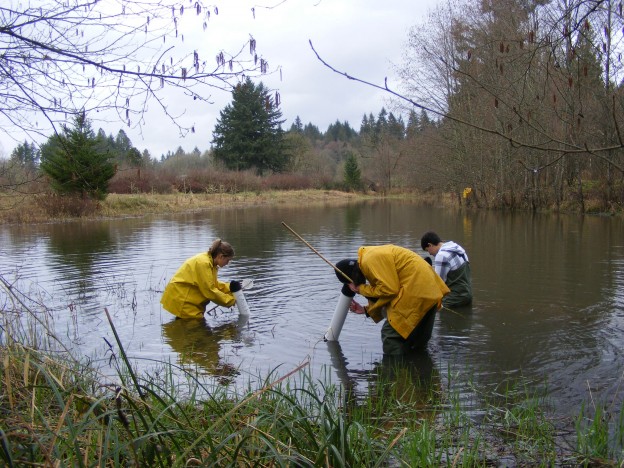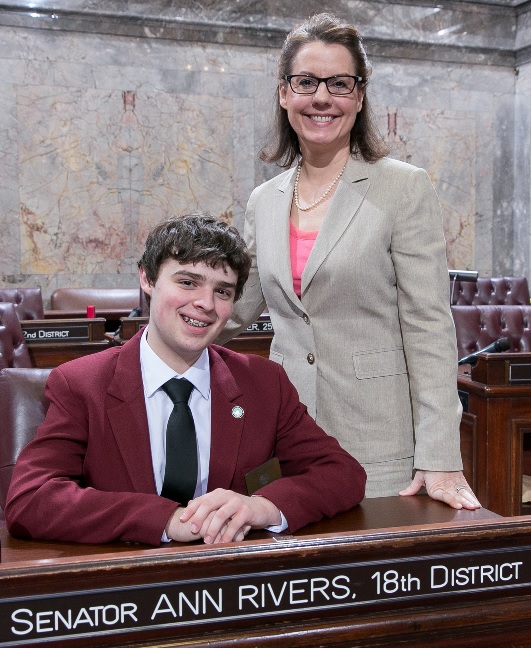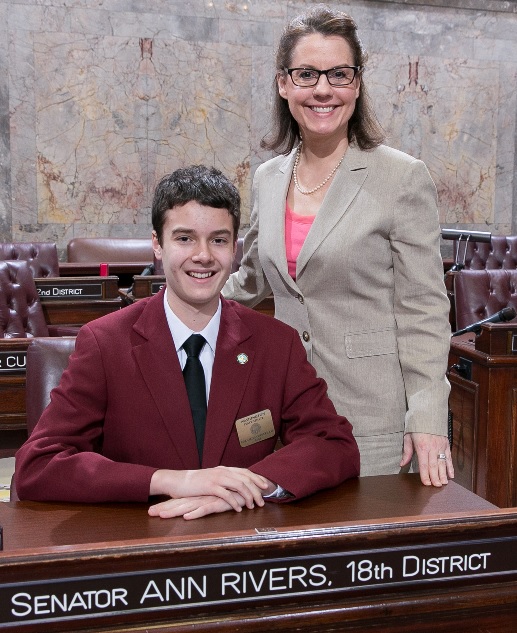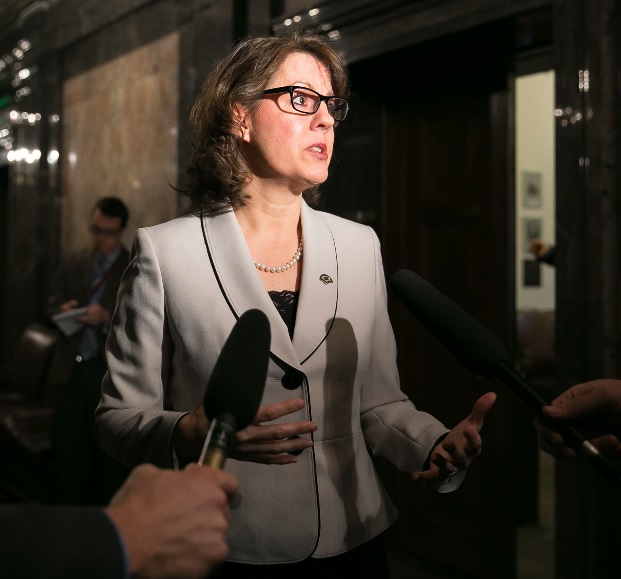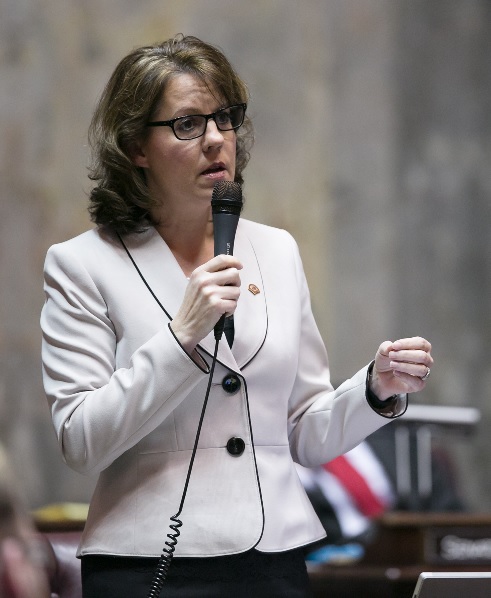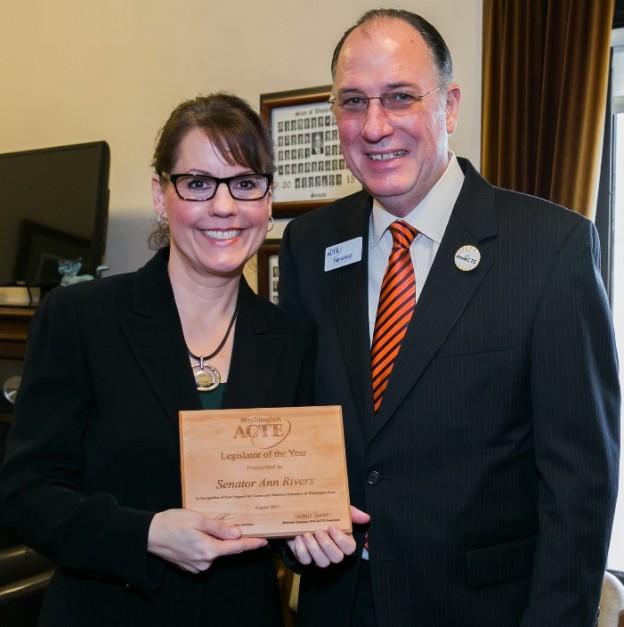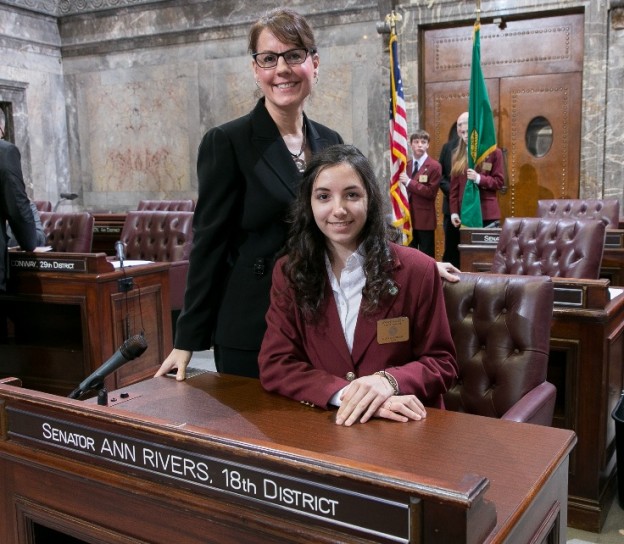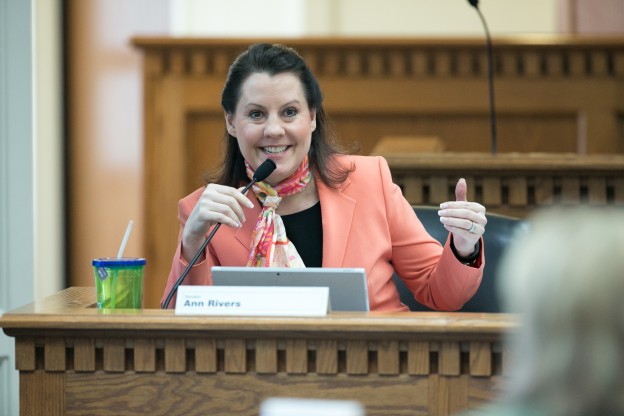Photo caption: Accepting the Washington Association for Career and Technical Education Legislator of the Year award in September 2015.
I’m sharing a blog post from the Washington Business Alliance championing a bill I’ve co-sponsored that would fund material and supplies for career and technical programs just like we do for traditional middle and high schools.

CTE is shorthand for “Career & Technical Education” — a set of programs that teach career and technology skills to middle & high school students. In recent years, CTE funding has become increasingly weakened in Washington State schools. If students can’t access career-connected learning experiences via CTE, it represents a big loss for kids, parents, and businesses in our state.
Washington residents have begun standing up for stronger CTE funding. There’s a bipartisan vehicle in the legislature this session to begin strengthening funding for Career & Technical Education: Senate Bill 6415.
The bill’s primary Democratic sponsor, Senator Christine Rolfes (District 23), stresses the “broad-based political support” behind stronger Career Tech education funding. “This bill addresses the critical need to reinvest in career and technical training in our state’s high schools. It’s sort of a ‘back to the future’ approach, that recognizes that these programs are critical for students who may not be college-bound, and that even those that are college-bound will benefit from career exploration and skills training. Employers throughout the state are clamoring for well-trained entry level applicants,” Rolfes said. “And teachers and parents recognize that some students learn better with hands-on classes with practical applications… Reinvesting in CTE programs appears to be something that garners broad-based political support, and should benefit communities throughout the state.”
The bill’s primary Republican sponsor, Senator Ann Rivers (District 18), emphasized the need to go beyond a one-size-fits-all, college-prep approach to secondary schooling. “Over the next five years, 35 percent of jobs will require a bachelor’s degree or higher, but 42 percent of jobs will require mid-level training; the kind of training that our career and technical programs provide. It’s time to let all kids know we value their future and fund both paths as basic education.”
There’s a diverse and growing coalition supporting legislation to strengthen CTE funding; businesses, trade associations, unions, education groups, parents, students, and educators who are working together to advocate for stronger Career Tech education. Coalition members include the Seattle Building & Construction Trades Council, Association of General Contractors Education Foundation, Manufacturing Industrial Council, Washington Maritime Federation, and the Pacific Northwest Aerospace Alliance.
CTE programs are more expensive to teach than regular courses. They require additional expenditures like industry standard equipment and supplies, industry certification options, additional student supervision, and teacher certification and training.
Current funding for CTE has remained relatively constant. At the same time, significant increases in funding for general education have placed it on equal footing with CTE. This provides schools with a perverse incentive to cut CTE programs in favor of less costly general ed. courses, placing the future of CTE in jeopardy.
The state uses something called an MSOC formula to determine K-12 funding. MSOC stands for materials, supplies, and operating costs. In the past there was a special multiplier used for CTE courses on account of the extra costs that inevitably accompany them. Tim Knue of the Washington Association for Career & Technical Education pointed out how the new funding paradigm would discourage schools from teaching CTE. “Going forward the budget does not include the necessary funding MSOC enhancement for Career and Technical Education in high schools. As a result, CTE funding will be equal to the Basic Education Allocation when it is fully funded; at that point a district may choose to discontinue expensive programs that have additional requirements for the same revenue.”
When comparing MSOC values between the old and new funding models, the CTE MSOC enhancement has shrunk from 144 percent to 18 percent. The same is true for Skill Center MSOC rates.
Current state budgets have not cut funding for CTE and even provide a small inflationary rate, resulting in modest growth over time. However this inflationary rate does not account for the cost of outfitting new programs or the more expensive materials for existing CTE programs. This means that, in order to match the supply monies provided, schools must cut back on CTE’s pricey applied learning activities.
Here’s how the Washington Association for Career & Technical Education explains it:
In school year 2014-15 state funding averaged $6,097.56 per CTE FTE compared to $5,755.84 per basic education FTE. This enhancement of $341.72 or 5.9% is insufficient to cover the additional costs associated with operating CTE programs, and in fact is not sufficient to cover even the allowed indirect rate charged to the CTE programs of 15%. The CTE enhancement over basic education has declined over time. The 1995 Secondary Vocational Education in the State of Washington report stated the enhancement at that time was 28% above basic education.
The situation created exacerbates the equity concerns which are central to the remaining McCleary demands. CTE teachers have begun negotiating with local districts for their salary enhancements because they aren’t coming from the state. Local districts are negotiating for local levy dollars to attract and retain CTE teachers.
Students enrolled in a 2-year CTE program during high school have a higher graduation rate (91.4%) than the average high school graduate (77.4%). CTE students learn applied STEM, English, and arts through skills-based, career-connected coursework. For many students it’s a critical pathway towards family wage careers and economic empowerment.
CTE programs statewide need an improved MSOC formula that will meet the needs for the higher cost programs. This is vital to the success of CTE to cover costs and meet the required standards associated with high quality CTE programming. CTE is a vital and transformative force in Washington’s K-12 education system. It is essential that it be fully funded going forward.
To learn more about the CTE funding situation, check out this Fact Sheet published in December 2015 by the Washington Association for Career & Technical Education.
by Hans D. Stroo on February 2, 2016
Read original article at: https://www.planwashington.org/blog/archive/coalition-fights-to-strengthen-career-technical-education/












